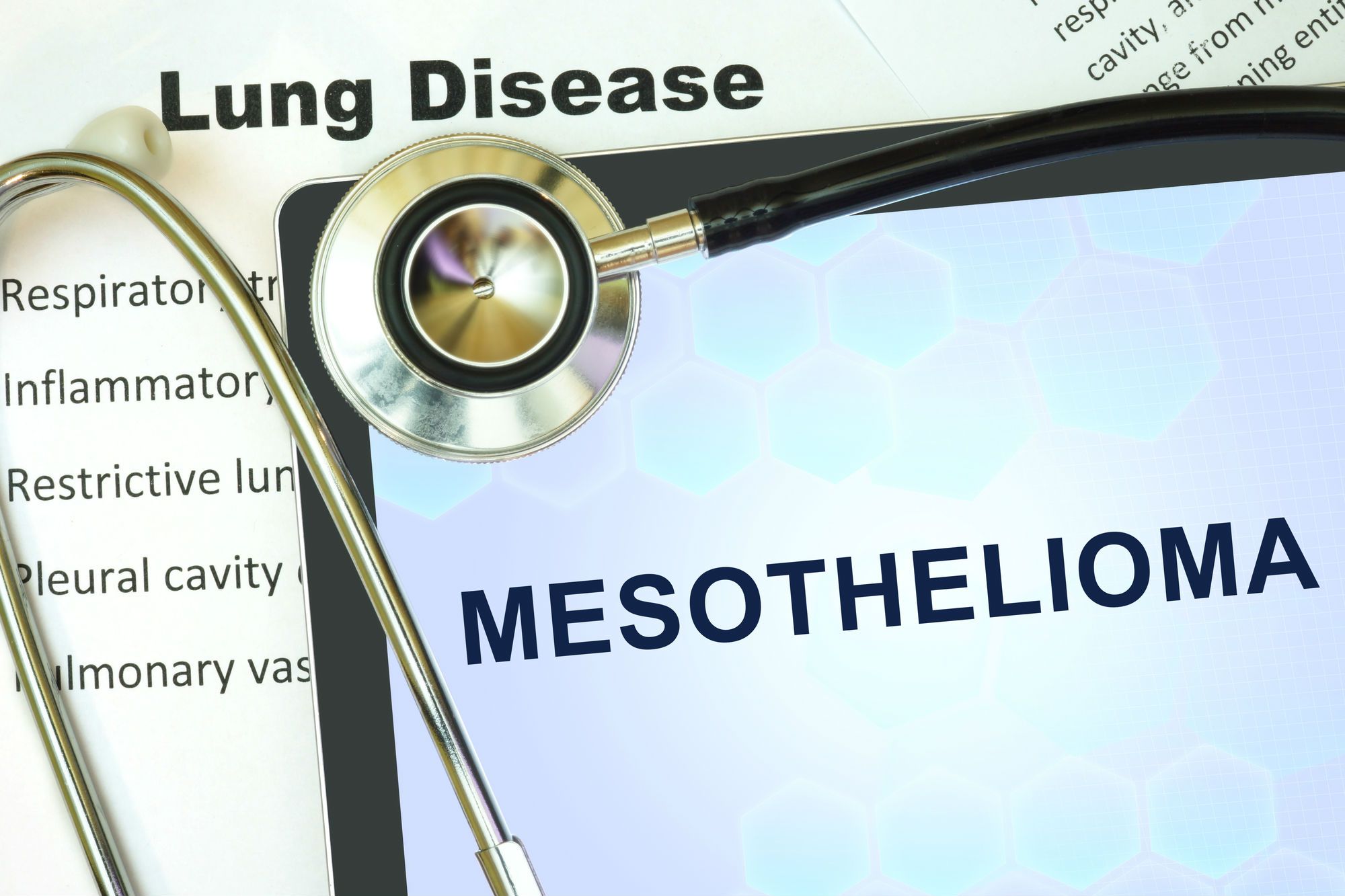Top Class Actions’s website and social media posts use affiliate links. If you make a purchase using such links, we may receive a commission, but it will not result in any additional charges to you. Please review our Affiliate Link Disclosure for more information.
Mayo Clinic explains that mesothelioma is a type of cancer that develops in the thin layer of tissue that lines most internal organs. The American Cancer Society says that the cells that make up this thin layer are called mesothelial cells, and the lining is called the mesothelium.
Some mesothelioma is benign and is not cancer, and therefore does not spread, but unfortunately, most cases of mesothelioma do cause cancer.
The most common form of mesothelioma forms in the lining of the lungs, and is known as pleural mesothelioma. Mesothelioma can occur elsewhere but is much rarer.
Johns Hopkins Health says that mesothelioma is just one form of lung cancer, and is rare among cancers that develop in the lungs, making up only around 5 percent of all lung cancer cases.
What Causes Mesothelioma?
A range of factors may be linked to mesothelioma, including environmental factors as well as predisposition. In some cases, radiation treating other kinds of cancer may be linked to the development of mesothelioma.
Pleural mesothelioma, a form of mesothelioma that forms in the lining of the lungs, is most commonly connected to exposure to asbestos, says the American Cancer Society.
The American Cancer Society goes on to say that when asbestos fibers are breathed in, they travel through the lungs into the pleura, the lining of the lungs. When they are there, these fibers can reportedly cause inflammation and scarring.
The American Cancer Society says that cancer forms when the DNA in cells is damaged, which results in uncontrolled growth. According to the American Cancer Society, asbestos fibers can damage DNA, causing cancer to develop.
However, Mayo Clinic notes that most people who have been exposed to asbestos never develop mesothelioma, which suggests that other factors may contribute to developing the disease.
What are the First Signs of Mesothelioma?
The first signs of pleural mesothelioma include the following:
- chest pain
- painful coughing
- shortness of breath
- lumps under the skin on the chest
- unexplained weight loss
Mayo Clinic says that the first signs of other types of mesothelioma are not as well-known as the first signs of mesothelioma in the lungs because other forms of mesothelioma are much rarer.
However, some signs of pericardial mesothelioma, which affects tissues surrounding the heart, include difficulty breathing and pain in the chest.
Mesothelioma can also develop in the tissues around the testicles. In these instances, mesothelioma is called mesothelioma of tunica vaginalis. The first signs of mesothelioma in these instances include swelling or a mass in the testicle.
Mayo Clinic notes that symptoms associated with the first signs of mesothelioma may be evidence of another condition, so it’s important to consult a doctor.
What are Other Symptoms of Mesothelioma?
Beyond the first signs of mesothelioma, other symptoms can develop as the disease progresses. According to the Mayo Clinic, pleural mesothelioma puts pressure on the structures in the chest, which can cause:
- difficulty breathing
- difficulty swallowing
- pain in the chest
- pressure on nerves and spinal cord, which can cause pain
- pleural effusion (accumulation of fluid in the chest) which can compress the lungs nearby and can result in difficulty breathing
Johns Hopkins says that mesothelioma develops over a long period of time, usually 20 or 30 years.
How Is Mesothelioma Different From Lung Cancer?

Lung cancer is the second most common kind of cancer, and mesothelioma is much rarer. 222,500 new lung cancer cases develop each year. In contrast, only 2,800 new cases of mesothelioma develop each year, almost all of which are associated with asbestos exposure.
Some of the symptoms of lung cancer are similar to those that present in mesothelioma, so diagnosis can be challenging. Identifying the first signs of mesothelioma is key to treating the condition, and distinguishing it from other conditions like lung cancer may be a primary step.
Both lung cancer and mesothelioma can be associated with a buildup of fluid in the chest cavity, an occurrence known as pleural effusion. However, some key differences are helpful in diagnosing a condition as mesothelioma versus lung cancer. For instance, pleural thickening is often associated with mesothelioma, but often is not associated with lung cancer. Pleural thickening describes a condition in which scar tissue builds up in the lining of the lungs, causing them to thicken.
Mesothelioma also takes much longer to develop than lung cancer does. It takes between 20 and 50 years to develop, whereas lung cancer takes around 15 to 35 years to develop.
What Happens After a Diagnosis?
After a patient reports their concerns to their doctor, the physician will look into testing options to determine whether or not the patient really has mesothelioma. The most common tests used for that purpose are ones that look inside the abdomen and chest to identify and diagnose mesothelioma.
The diagnosis process begins with a physical exam and medical history for the physician to determine whether or not the patient could have been exposed to asbestos. Past illnesses and any related treatments will also be explored.
In order to verify whether or not the medical concern in question is mesothelioma, a chest x-ray can give the medical team better insight into the internal issues. A CT scan or biopsy are also commonly used to detect cancer.
Multiple factors influence the patient’s options following a diagnosis, especially if the patient does have malignant mesothelioma. These treatment options will vary based on the current stage of the cancer, whether or not any portion of an existing tumor can be removed via surgery, the patient’s activity level, and age.
Most doctors will aim to give the patient the best quality of life given the severe diagnosis of mesothelioma since there is no cure. The determination of whether the cancer cells have already spread to other parts of the body will also inform the treatment and management decisions.
Cancer can spread from where it started to other parts of the body and mesothelioma of the lung has four different stages based on how far the cancer has already spread.
Join a Free Asbestos Mesothelioma Class Action Lawsuit Investigation
Do YOU have a legal claim? Fill out the form on this page now for a free, immediate, and confidential case evaluation. The attorneys who work with Top Class Actions will contact you if you qualify to let you know if an individual asbestos lawsuit or asbestos class action lawsuit is best for you. [In general, asbestos mesothelioma lawsuits are filed individually by each plaintiff and are not class actions.] Hurry — statutes of limitations may apply.
ATTORNEY ADVERTISING
Top Class Actions is a Proud Member of the American Bar Association
LEGAL INFORMATION IS NOT LEGAL ADVICE
Top Class Actions Legal Statement
©2008 – 2024 Top Class Actions® LLC
Various Trademarks held by their respective owners
This website is not intended for viewing or usage by European Union citizens.
Get Help – It’s Free
Join a Free Asbestos Mesothelioma Class Action Lawsuit Investigation
Fill out the form below to find out if you qualify for this mesothelioma lawsuit investigation.
If you qualify, you will be contacted by the experienced asbestos attorneys within one business day by phone and/or email.
Oops! We could not locate your form.













